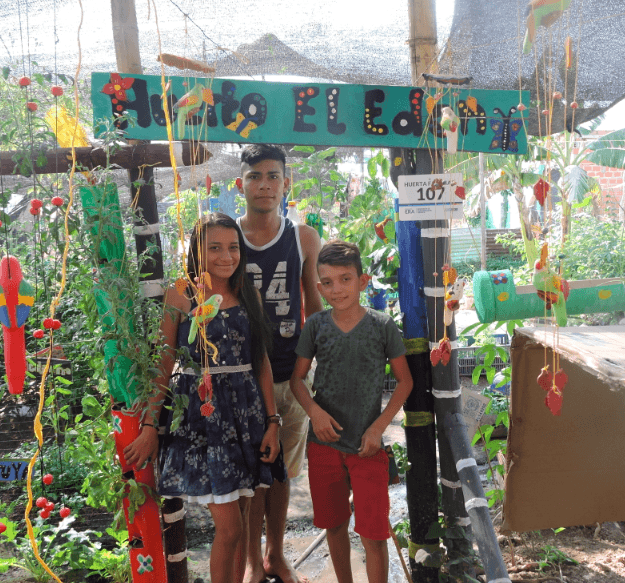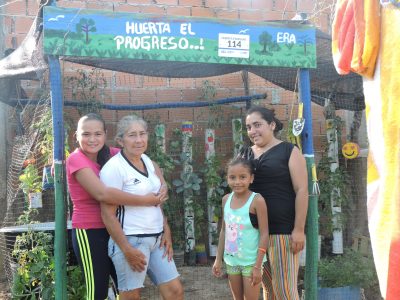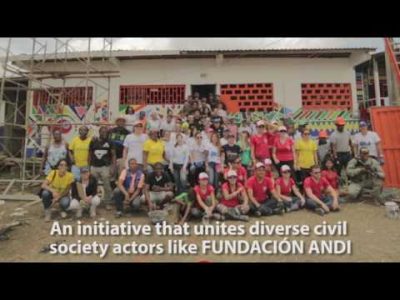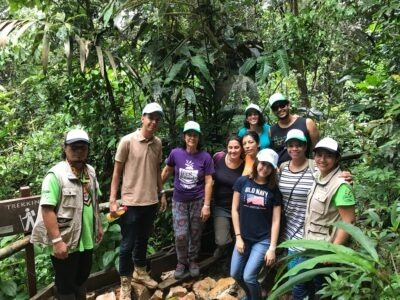
Arauca is the main municipality of the northeastern Colombian Department of the same name. Located south of the Arauca River, it is connected to Venezuela by the José Antonio Paez International Bridge. The city of Arauca is the principal urban settlement in Colombia along the Libertadores highway, which joins the capital cities of Bogotá and Caracas. The department of Arauca is facing a new crisis, exacerbating social and economic issues that persist in municipalities on the Colombia-Venezuela border. Specifically, the department contends with problems related to the armed conflict, which victimized 30 percent of the population, an unemployment rate 12.1 percent and the resulting lack of economic opportunities, multidimensional poverty rates of 70 percent, and the influx of Venezuela refugees, all of which have worsened social and economic issues.
ACDI/VOCA implemented this second phase of the ERA program in seven settlements identified as priority. The program responded to needs for potable water and improved environmental health and introduced resilience activities related to agriculture and food security, economic recovery, protection and hygiene. The program provided immediate alleviation and reduced the vulnerability of families living in seven settlements, in the municipality of Arauca through a combination of response, risk reduction, and preparedness activities that also helped build community resilience.
Project Objectives
- Agriculture and Food Security: Improve availability and sustainable production of food
- Protection: Promote individual and collective resilience to cope with current circumstances and help in the restoration of social cohesion
- WASH: Reduce morbidity and mortality associated with consumption of contaminated water and precarious hygiene conditions
Project Activities and Approaches
- The program provided immediate response actions aimed at saving lives and increased communities’ overall resilience to the humanitarian crises. The ERA II interventions focused on approximately 900 households and benefited over 3,000 people that were most directly affected in the seven informal settlements of Pescadito, La Gloria, Brisas del Puente, Puerto Alegre, El Refugio, Villa Linda, and San José.
Project Results
- 1,150 people directly benefited from improving agricultural production and food security activities
- 1,111 individuals participated in psychosocial support services
- 1,476 individuals directly utilized improved water sources provided with BHA funding
- 97 percent of households targeted by the hygiene promotion program have soap and water at designated handwashing locations
- 5,669 individuals received improved service quality from solid waste management, drainage or vector control activities
- 48,000 migrant families in 24 departments received cleaning and hygiene vouchers as a way to mitigate COVID-19
- 53,945 ERA II direct project beneficiaries
Funder: USAID Bureau for Humanitarian Assistance
Chief of Party: Andrea Garcia, agarcia@acdivoca-co.org
Project Director: Nicole Chao, nchao@acdivoca.org
Project Specialist: Yamil A. Roger Nasser at yroger@acdivoca.org








